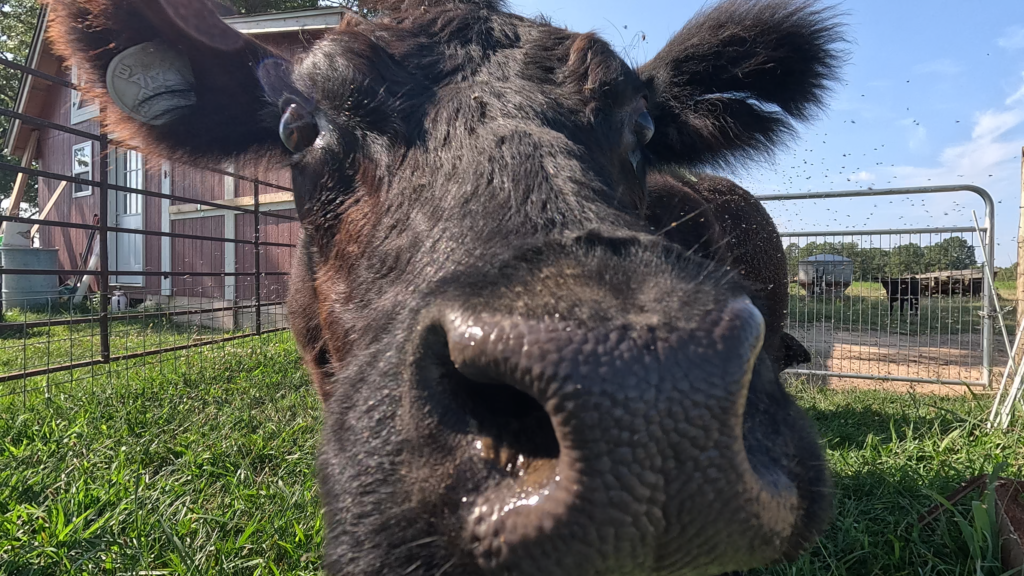Over the last few years there has been growing interest in farming and a desire to escape the high pressure, urban lifestyle that so many people find themselves in. So, if you’re one of those people who are looking to make a change, or maybe you’re already in the process but not sure where to start, this post is for you.
KNOW YOUR WHY
If you’re looking to start a small-scale farm or homestead the first thing you need to do is, Know Your Why. No matter what kind of project you’re undertaking you have to be committed or else you’re setting yourself up for failure.
A lot of people look at the rural, farm lifestyle and get all kinds of warm fuzzy feelings about the beauty of nature, of animals roaming the hillsides, plentiful gardens, and that kind of thing. The reality is that while nature is beautiful, it’s going to fight against everything you try to do if you don’t know how to work with it.
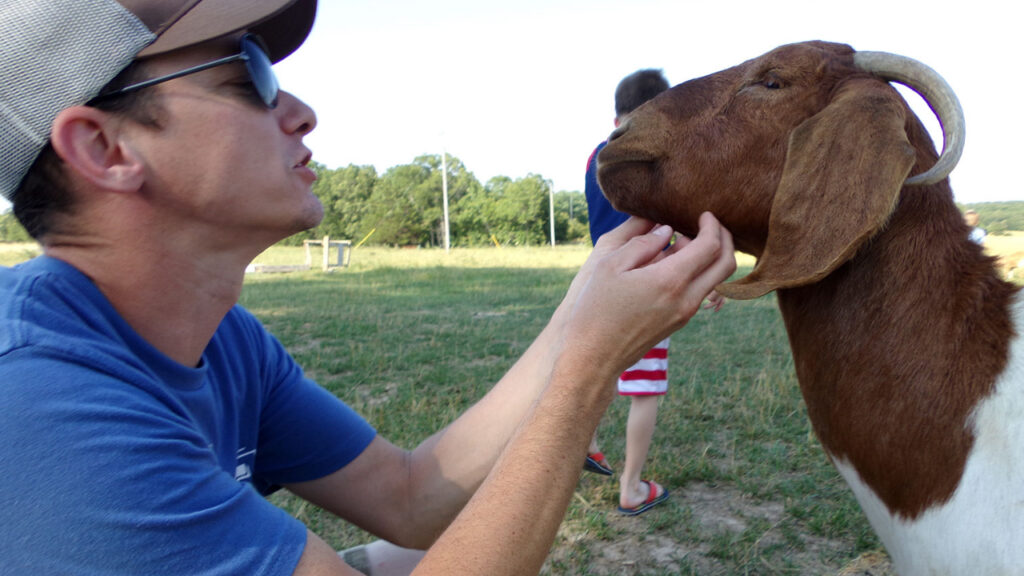
Those animals roaming the hillsides of your farm like to roam your neighbors’ hillsides too. Then, when you least expect it, they like to get sick and die. Gardens like to grow weeds and bugs and racoons like to eat your vegetables. The weather is rarely, if ever, average.
Now, I’m not trying to discourage anyone from pursuing their dreams because, in my opinion, this lifestyle is the best there is. However, it can be difficult. I’m only 39 years old, but I’ve lived in this part of the world for every bit of it and I’ve seen a lot of people move in and then a few years later move right back out, saying that we’re all crazy for living the way that we do. When things get really tough, it’s your why that keeps you going.
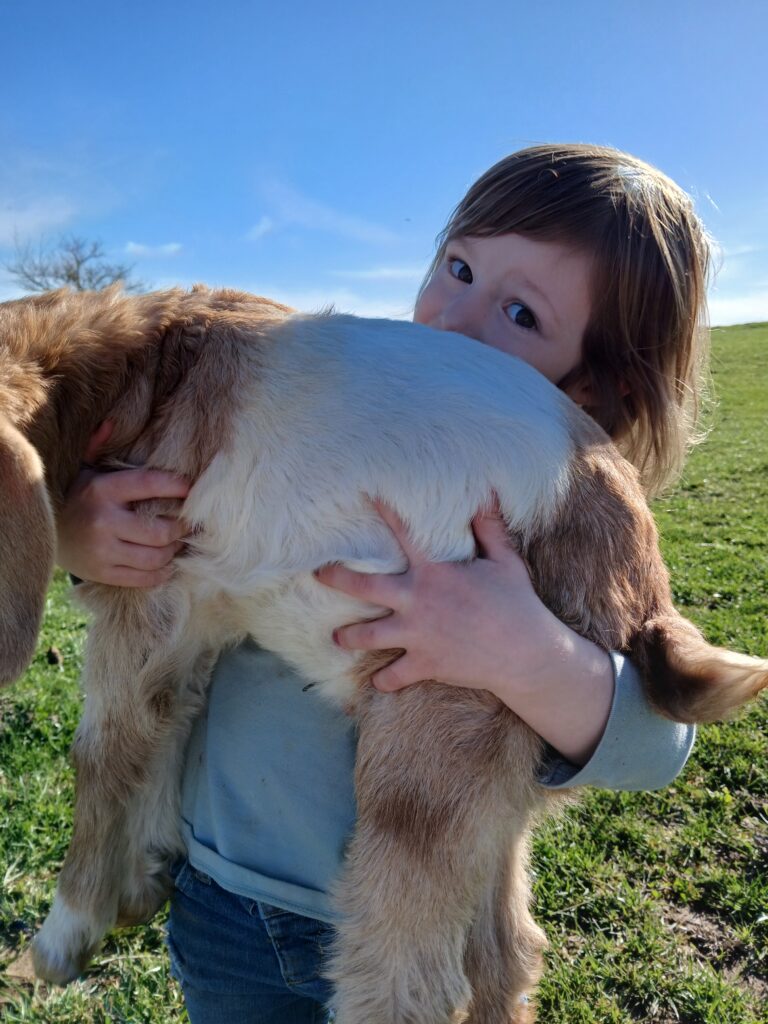
FIND YOUR MARKET OR NICHE
The next thing you need to do is Find Your Market or Niche and focus on that. It’s hard to learn a lot of new things all at once and be good at every one of them. So, it’s a good idea to find a gap in the local market, then figure out how to fill it. If you can build up your business as the egg farmer, the chicken farmer, the lettuce farmer, or whatever it may be, you allow yourself to develop a customer base that will be ready to buy other products as soon as you are ready to start branching out.
About 12 years ago in my initial attempt at direct-to-consumer farming, I started to build a customer base around pastured chicken. My first customers were friends and family who began to tell their friends and family, who began to tell their friends and family, and so on. It wasn’t long before I started to get standing orders for chicken.
Then, once I started raising pigs, I already had a customer base that was ready to buy. The first group of pigs I raised to sell was a group of 5 feeder pigs that I bought and fed out to market weight. I let my customers know that I was going to have 5 hogs for sale, and within just a couple days they had all been claimed.
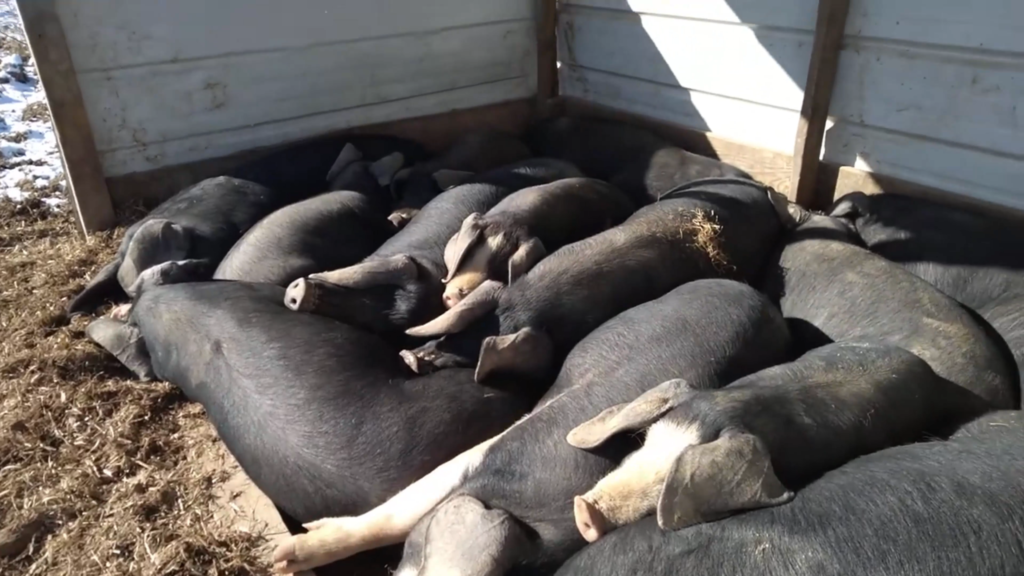
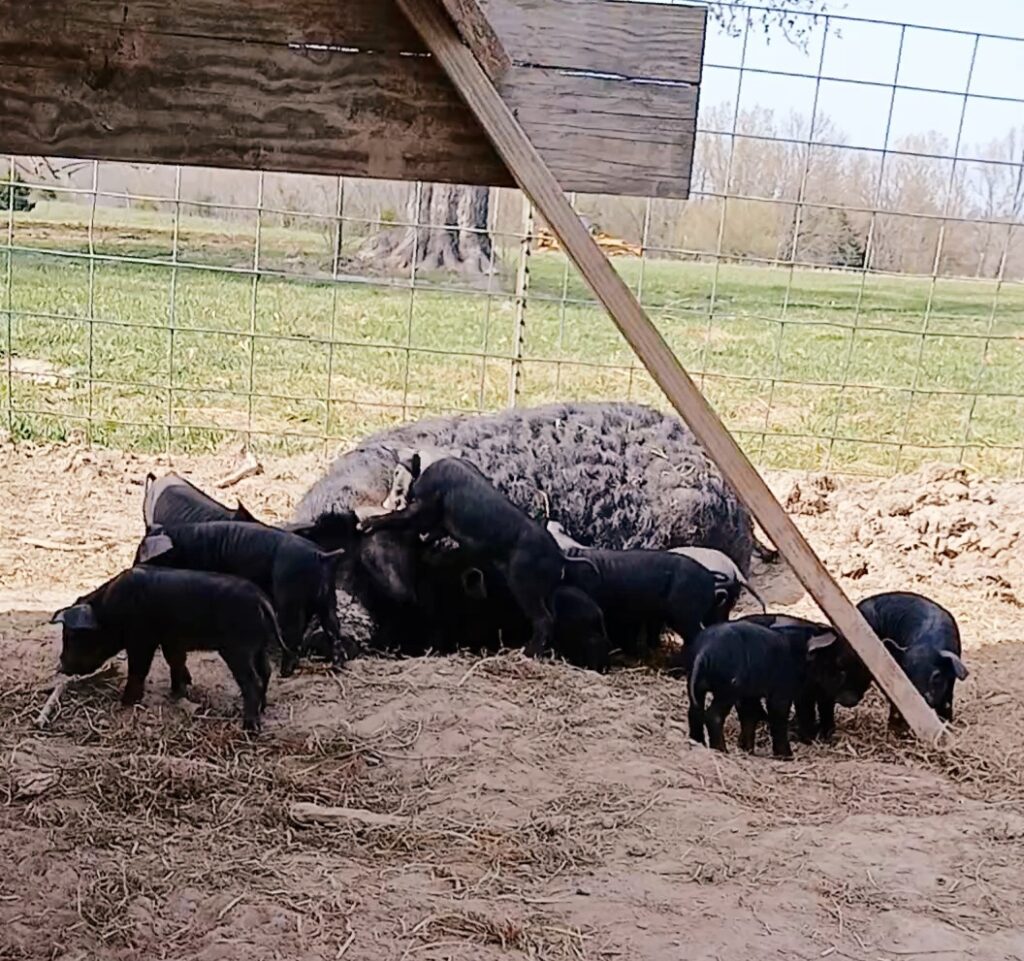
Now, a couple years later, I ended up taking a step back from that farming operation because of some family health issues and I let that customer base go. When I decided to make another attempt at this kind of farming I just went out and bought a bunch of pigs without doing any initial groundwork, thinking that I’d be able to sell them easily. That wasn’t the case. I ended up taking a huge loss because I didn’t have a customer base anymore. So, it is very important to make sure that there will be buyers for your products before you’re ready to sell.
TAKE IT SLOW
I also want to piggyback a suggestion on to this point as well, which is Take It Slow. Give yourself time to make mistakes and learn. I didn’t sell any chickens from the first group I raised. We kept them for our own use and gave a handful of them away to prospective customers and asked them to give us an honest review. That gave us time to get our sea legs, so to speak, and gauge interest in what we were trying to do.
LEARN TO BE RESOURCEFUL
So, now that you know your why, you’ve found your market or niche, you need to Learn To Be Resourceful. What I mean by this is that you can quickly tear your entire plan to shreds if you fall into the trap of buying all of the new, fancy looking equipment and infrastructure. While the farm store is a fun place to go look at all of the cool stuff, chances are you don’t really need much of what you’re seeing there.
For instance, my first chicken feeders were built from 4-inch drainpipe. One 10-foot section of pipe made four 5-foot feeders. I used wood deck screws to attach a short piece of wood to the bottom to keep it from tipping over. Instead of buying 4 feeders for $30 or $40 each, I made my own for around $20 total. I’ve gotten to the point where I actually see it as a challenge to take a pile of scrap and see what I can make out of it that I can use on the farm.
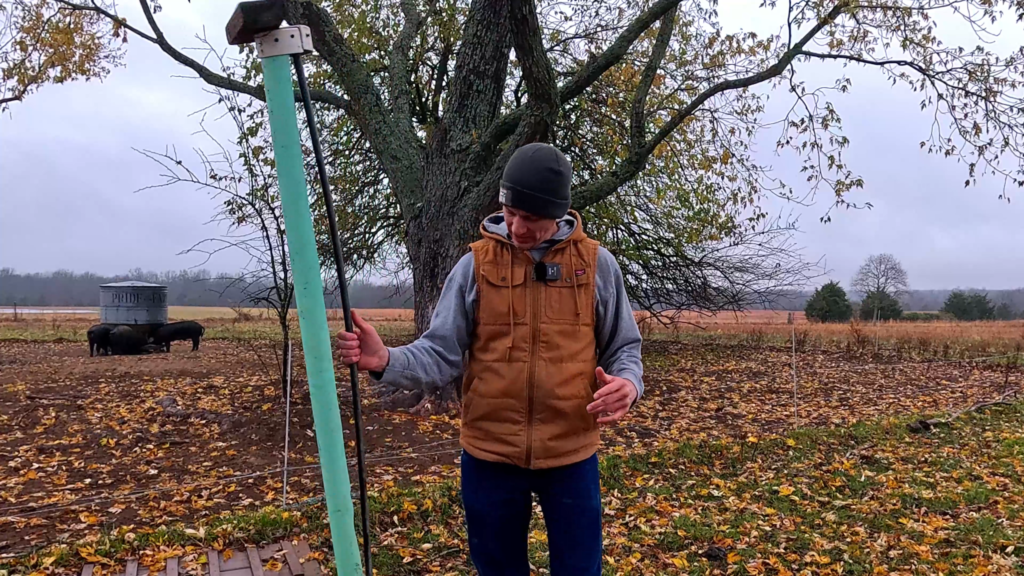
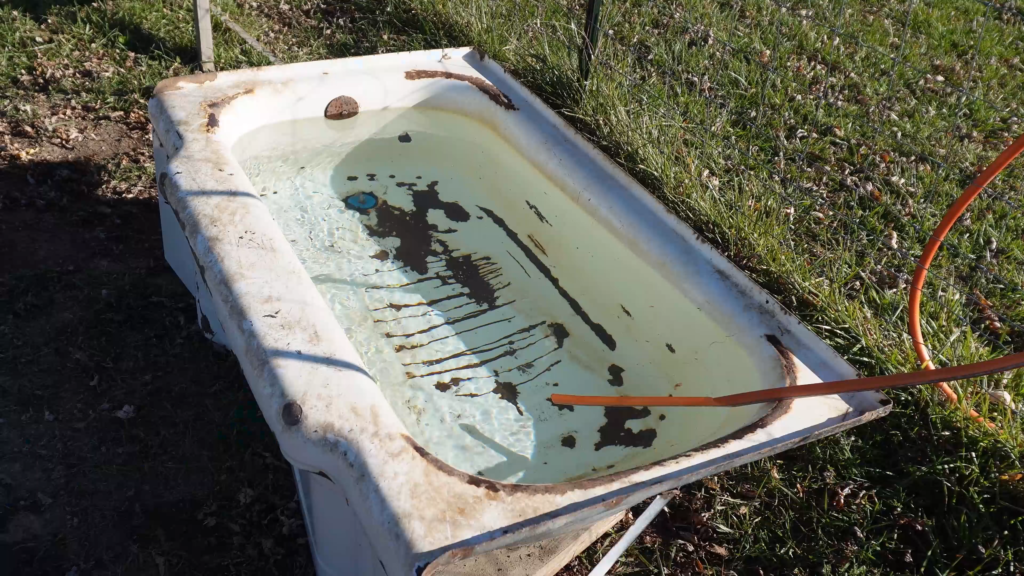
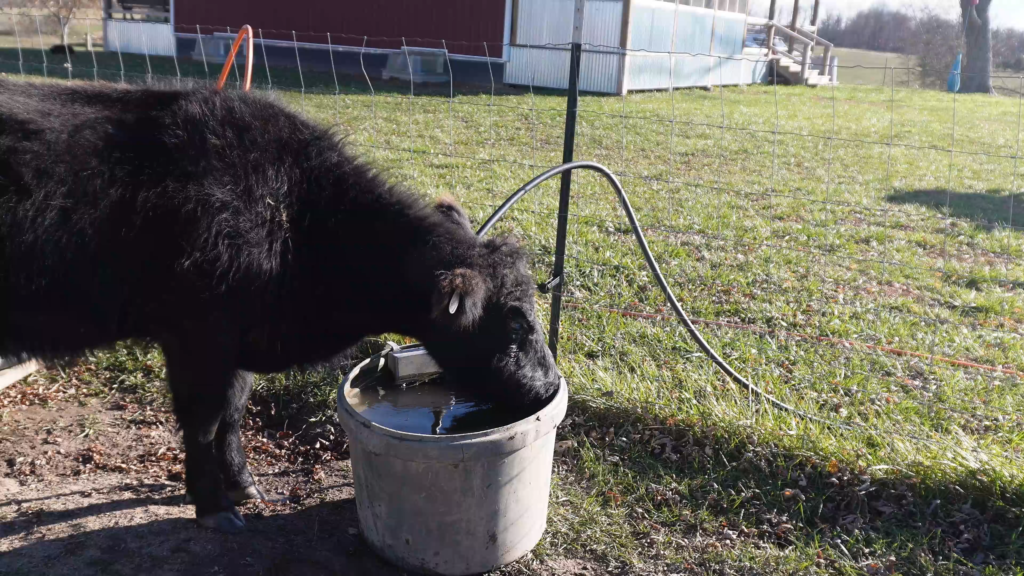
I like using old protein tubs and used 55-gallon drums for feeders and waterers as well as feed storage. Old pallets, scrap steel, reclaimed lumber, lots of items like that can be used for any number of things. If you’re serious about making a profit, you have to think outside the box.
GET OUT OF DEBT
While we’re on the subject of money, I would recommend that you Get Out Of Debt, or if you are already debt free, stay that way. I’ve mentioned in other videos that this suggestion is based 100 percent on experience. I’ve borrowed money against lots of different things thinking it was the best way to get ahead.
However, I’ve learned that borrowing doesn’t move me toward my goals any faster than if I had just saved my money and made my purchases with cash. The reason is because when you take out a loan, you’re using a lot of resources to just simply service the loan. Whatever profits you make are not able to be used to grow your business because they’re going to your lender.
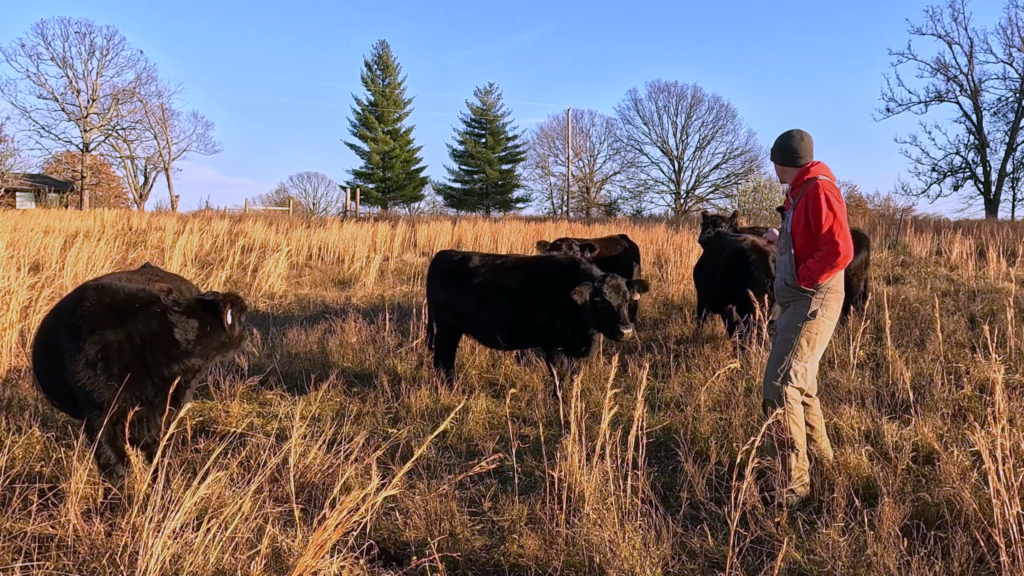
Now, this means that you may have to do without or wait to make certain purchases until you have the cash to do so. If you encounter a project or a job that requires a certain tool or piece of equipment, rent, borrow, or hire the job done.
The same is true for buying property. You don’t have to own property to be a farmer. If you’re able to lease land, do that first. I’ve known a few farmers that exclusively farmed leased land, and in terms of profit they were able to run circles around the folks who thought they had to own a big piece of land in order to farm.
BE PASSIONATELY PATIENT
The last suggestion I’ll give you if you want to become a farmer is this, Be Passionately Patient. Whatever it is that you are doing. There are a few passages of scripture that use the two words together, passion and patience, that we generally do not associate with one another. How can someone be passionate and patient at the same time.
Well, you have to understand that there are just some things that you cannot hurry. You can’t make a seed sprout before it’s ready, you can’t shorten the gestation period of your livestock. Seasons come and go yet there’s something to be enjoyed about every one of them. Learn to love the process. Be eager for the opportunity to grow and develop because, at the end of the day, this is about a lifestyle just as much as it is anything else.
